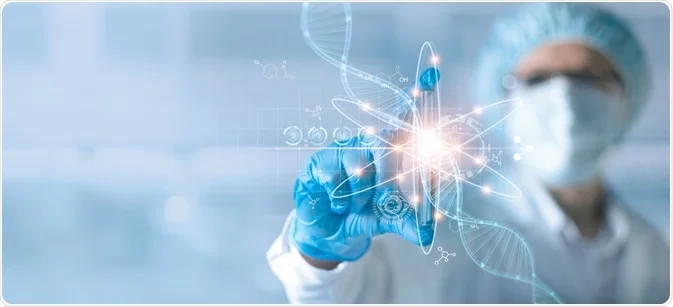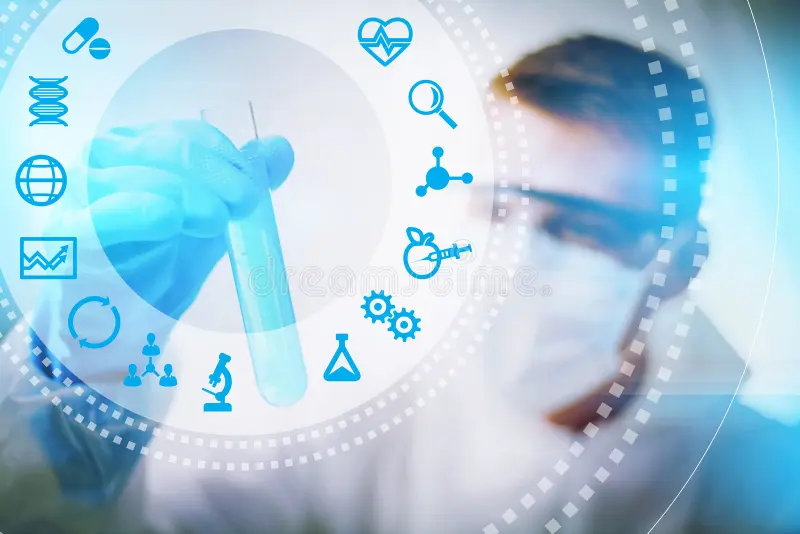In recent years, the field of biotechnology and health tech has witnessed unprecedented growth and innovation. Scientists and researchers around the globe are making remarkable strides in harnessing the power of genetic engineering to revolutionize healthcare. This article delves into the exciting developments that are shaping the future of medicine and healthcare.
The Interplay of Biotechnology and Health Tech
Biotechnology and health tech are intrinsically linked, driving each other’s progress. Here, we’ll explore how these two fields converge to create groundbreaking solutions.
Biotechnology, at its core, involves harnessing biological systems, organisms, or derivatives to develop products and applications that benefit society. It encompasses a wide range of disciplines, including genetic engineering, molecular biology, and bioinformatics.
The Role of Genetic Engineering
Genetic engineering is a pivotal component of biotechnology, allowing scientists to manipulate the genetic material of organisms to achieve specific outcomes. This technology has opened up a world of possibilities in healthcare, from targeted therapies for genetic disorders to personalized medicine based on an individual’s unique genetic makeup.

Advancements in Genetic Sequencing
Recent breakthroughs in genetic sequencing have propelled the field forward. High-throughput sequencing technologies now enable researchers to rapidly decode entire genomes, providing invaluable insights into the genetic basis of diseases and paving the way for precision medicine.
CRISPR-Cas9: A Game-Changing Tool
One of the most transformative developments in genetic engineering is the advent of CRISPR-Cas9 technology. This revolutionary tool allows for precise modification of DNA, offering unprecedented potential for treating genetic disorders and even preventing hereditary diseases.
Innovations in Diagnostics and Treatment
Biotechnology and health tech have led to remarkable advancements in diagnostics and treatment modalities.
Personalized Medicine: Tailoring Treatments to Individuals
Thanks to advancements in genetic profiling, personalized medicine has become a reality. By analyzing an individual’s genetic makeup, healthcare providers can tailor treatments to maximize efficacy and minimize side effects.
Biomarker Discovery for Early Detection
The identification of biomarkers through cutting-edge biotechnological techniques has revolutionized early disease detection. These unique molecular indicators allow for the identification of diseases at their earliest stages, vastly improving prognosis and treatment outcomes.
Ethical Considerations in Biotechnology and Health Tech
As the field of biotechnology and health tech continues to advance, ethical considerations become paramount.
Balancing Innovation with Ethical Boundaries
While the potential of biotechnology and genetic engineering is immense, it’s crucial to navigate ethical dilemmas surrounding issues such as genetic manipulation and privacy concerns. Striking a balance between progress and ethical boundaries is imperative.
Informed Consent and Genetic Testing
In the era of personalized medicine, ensuring informed consent for genetic testing is of utmost importance. Individuals must have a clear understanding of the implications and potential risks associated with revealing their genetic information.
FAQs
How are biotechnology and genetic engineering transforming healthcare?
Recent advancements in biotechnology and genetic engineering have revolutionized healthcare by enabling personalized treatments, early disease detection, and targeted therapies for genetic disorders.
What is CRISPR-Cas9, and how is it revolutionizing genetic engineering?
CRISPR-Cas9 is a groundbreaking genetic engineering tool that allows for precise modification of DNA. It holds tremendous potential for treating genetic disorders and preventing hereditary diseases.
What is personalized medicine, and how does it benefit patients?
Personalized medicine involves tailoring treatments based on an individual’s unique genetic makeup. This approach maximizes treatment efficacy and minimizes side effects.
What are biomarkers, and why are they significant in healthcare?
Biomarkers are unique molecular indicators that play a crucial role in early disease detection. They provide invaluable information for diagnosing and treating diseases at their earliest stages.
What ethical considerations come into play with biotechnology and genetic engineering?
Ethical considerations in biotechnology and genetic engineering revolve around issues like genetic manipulation, privacy concerns, and informed consent for genetic testing.

How can we ensure responsible progress in biotechnology and health tech?
Responsible progress in biotechnology and health tech involves maintaining a balance between innovation and ethical boundaries, prioritizing informed consent, and addressing potential risks and implications.
Conclusion
The advancements in biotechnology and genetic engineering are propelling healthcare into a new era of precision and personalized medicine. With innovations like CRISPR-Cas9 and personalized treatments, we stand on the cusp of a healthcare revolution. However, it’s imperative that we navigate this path with careful consideration of ethical implications. As we forge ahead, let us ensure that progress is guided by a commitment to the well-being and informed consent of all individuals.



